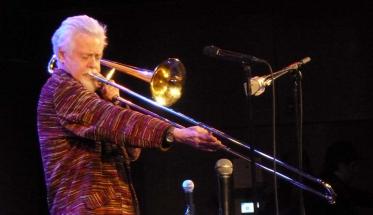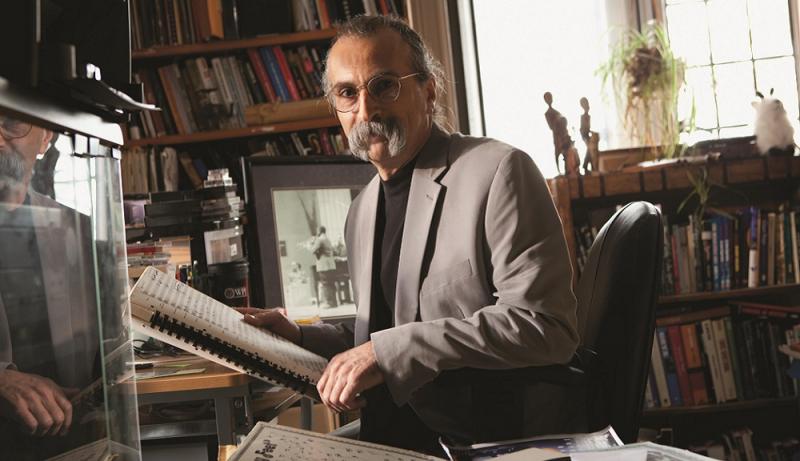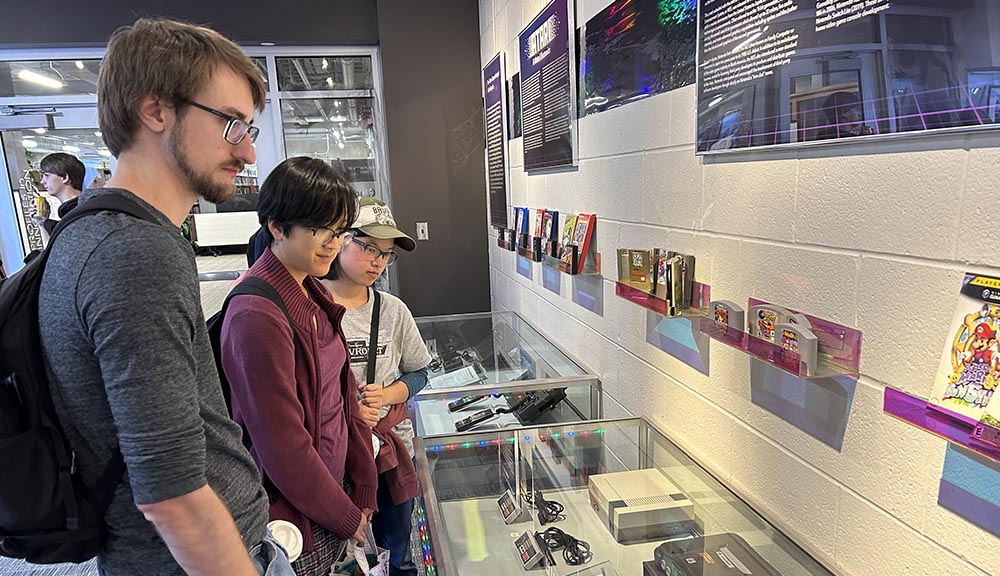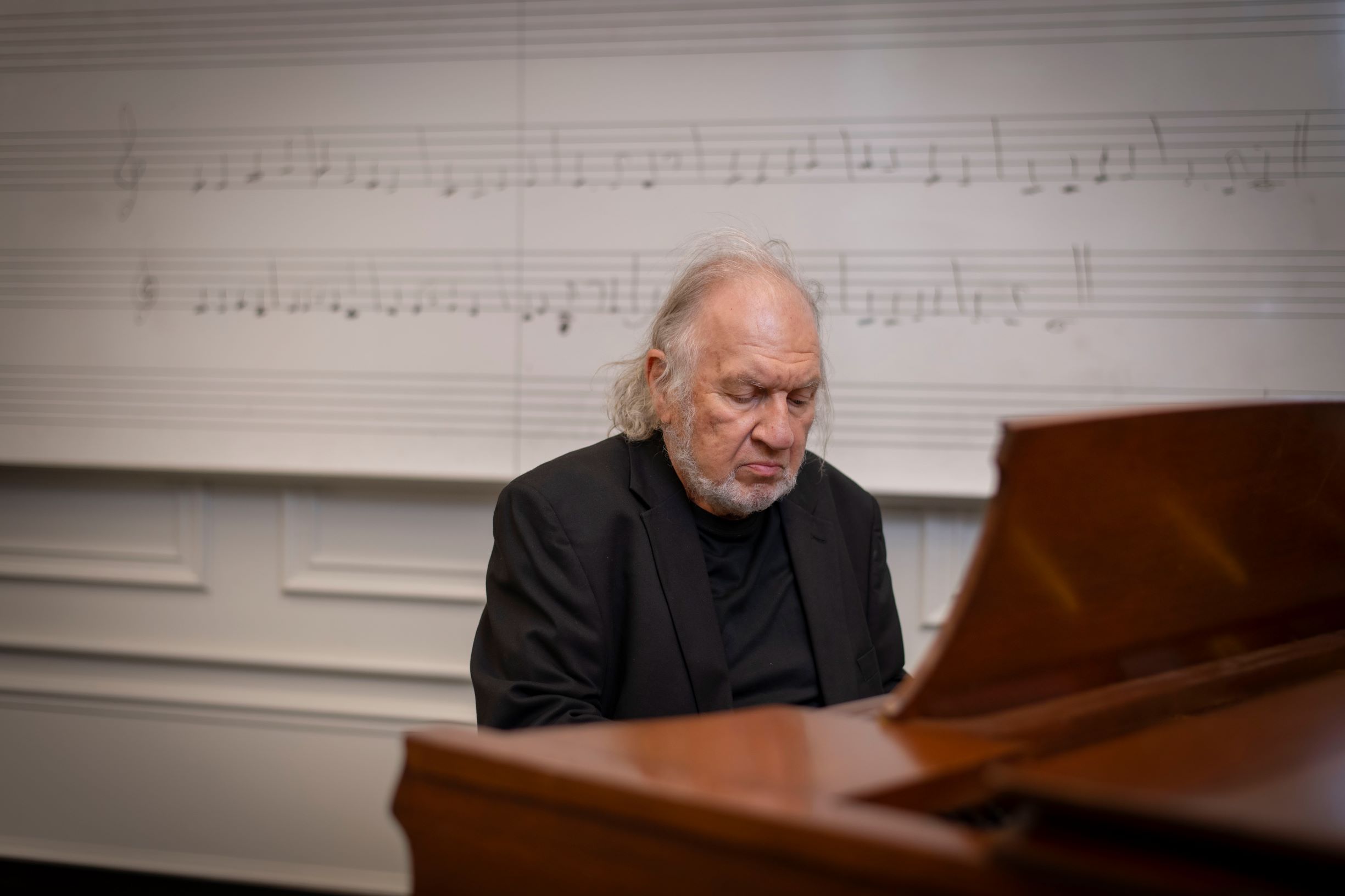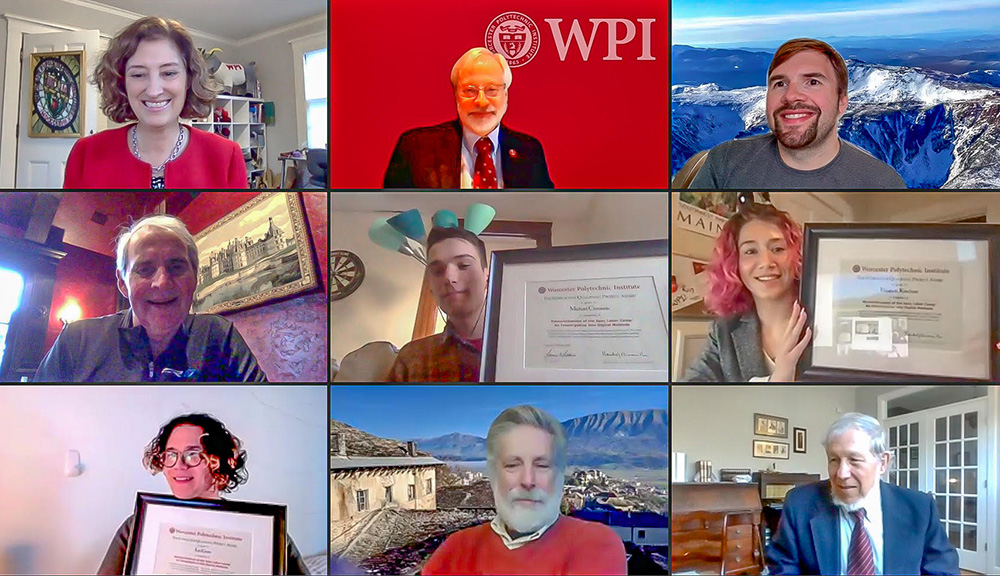When assistant teaching professor Rich Falco invited two jazz experts to address his Jazz History Database class last year, little did he know it would lead to WPI’s acquiring the archive of a jazz heavyweight.
In a major coup for the database that Falco founded, internationally acclaimed jazz trombonist Roswell Rudd’s massive archive of work—audio, video, and print—is being donated so that everyone will be able to hear the music of a man the New York Times called “a central figure in the avant-garde jazz scene of the 1960s and ’70s.”
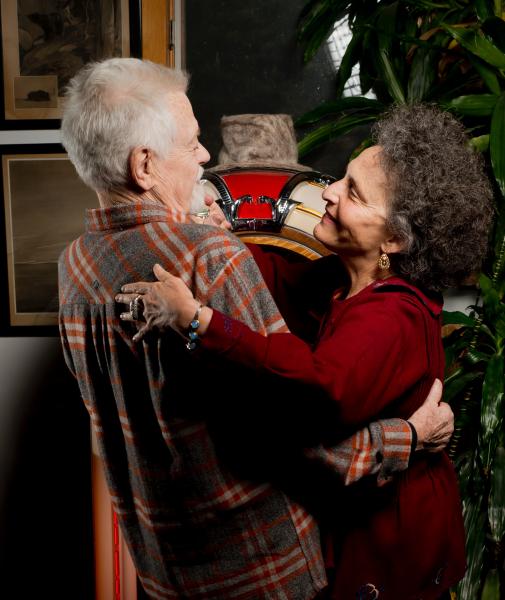
Rudd and Gillis dancing together.
“We have never acquired an archive as large as the Roswell Rudd collection,” says Falco, who also serves as director of jazz studies at WPI. “Included are hundreds of hours of video of live performances with artists filmed on location all over the world in concert halls and in venerable jazz venues. Some of the most recognizable names in cutting-edge jazz are captured in performance with Roswell.”
A lifetime of music to preserve
Rudd, who passed away in December 2017 at 82, was a titan on the jazz scene—a composer and musician. He taught at colleges and collaborated with musicians from around the world.
“After his return to commercial recording and international performances in 1999, his music became more diverse, mixing tuneful original compositions and jazz standards with R&B classics and ballads from France and Cuba,” the Times wrote.
Verna Gillis, Rudd’s longtime companion and collaborator, says she’s thrilled to be giving his archive to the university, which is also the official home of the New England Jazz Alliance Hall of Fame. The “Roswell Rudd Collection” will launch on the database Nov. 17, Rudd’s birthday. He and his contributions to jazz will also be celebrated that day with a concert in New York City.
“WPI has so much to offer. Look at their intention. Look what they’re doing,” Gillis says. “This is modern—the best use of technology.” As for Rudd, she says it would’ve been “beyond his wildest dreams” to know that his work, including hand-written scores, would be preserved like this.
“There’s something precious about handwriting," she adds. "Seeing Roswell’s scores written in pencil by hand—that’s very moving to me.”
